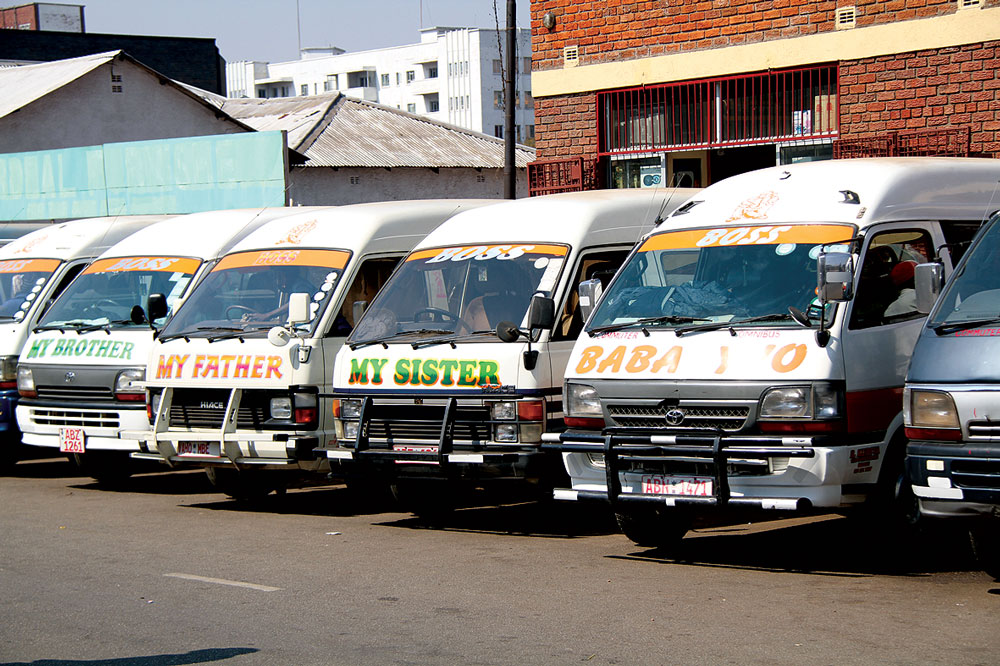
THE old adage, “desperate circumstances call for desperate measures,” has been played out in the public transport sector where “innovative” robbers – under the camouflage of taxi and commuter omnibus crews – have devised new methods of stealing by targeting unsuspecting commuters.
PHILLIP CHIDAVAENZI SENIOR FEATURES WRITER
Several such robbers have since appeared in court, with the police warning commuters to be “discerning” before using public transport vehicles.
With the country’s economic outlook still stuck in the grim mode and industry spewing out many workers through retrenchment exercises, desperados with no alternative streams of finance have found resorting to crime for survival the easiest and most convenient route, despite that it is fraught with pitfalls.
In one of such cases recently heard at the Harare Magistrates Court, one Alexio Kagoro (23) of Mbare National teamed up with his friends — Leon Nyakudirwa, John Nyashanu and another identified only as Tendai — and allegedly went on a spate of robberies while pretending to be bona fide taxi operators.
The four would allegedly offer people transport, threaten them with a pistol, knives and a knobkerrie before robbing them of their cash and valuables.
Several people have fallen prey to these robbers, including Mike Mkonzi (24) of Harare, who was robbed of his Samsung Galaxy smart phone after having boarded a commuter omnibus he was told was headed for Bulawayo at the Harare Show Grounds.
“When we had just passed Warren Hills Cemetery, one of the guys made as if he wanted to lock the door. He opened it and forcefully pushed me out of the vehicle while grabbing my phone. They then drove off,” he told NewsDay.
- Chamisa under fire over US$120K donation
- Mavhunga puts DeMbare into Chibuku quarterfinals
- Pension funds bet on Cabora Bassa oilfields
- Councils defy govt fire tender directive
Keep Reading
This new form of robbery has not only impacted negatively on the unsuspecting commuters, but has also dealt a severe blow on the operations of genuine taxi and commuter omnibus businesses.
“It is now difficult to get new customers and we are now forced to rely on our old customers only,” said Jeffrey Mudondo, a Harare taxi driver. “It appears as if people are now suspicious of taxi drivers whose services they have never used before.”
Statistics released by the police in November last year showed that at least 3 499 commuters were kidnapped and robbed by pirate taxi drivers countrywide, with 284 of them having been robbed at gunpoint.
Police spokesperson Chief Superintendent Paul Nyathi told State media then that the police were concerned about the emerging trend.
“We are concerned with plain robbery cases (committed without the use of firearms) which involve pirate taxis, especially in Harare, Bulawayo, Kwekwe and Mutare, where people are offered lifts during the night and attacked,” Nyathi said.
The police, however, have been accused of being part of the problem due to their failure to curb the problem, something that social commentator Robert Mhishi said they could easily do if they applied themselves to it.
“You’ll find that most of these guys use private vehicles that are not registered as taxis and when they get to the roadblock or when they are arrested, they simply pay the police and are let loose,” he said.
“Perhaps the commuter omnibus crews end up resorting to robbing to get money to replace what they would have paid to the police when their kombis should simply have been impounded.”
Increasing levels of poverty and unemployment, especially among the youths, have also been cited as a contributory factor as it has significantly fuelled criminality.
Some of the youths who had resorted to black market dealing at the peak of the country’s hyper-inflationary period before the phasing out of the local currency were caught off guard when the government introduced the multi-currency regime in 2009.
In a paper presented at the March 2012 National Youth Conference in Harare, National Association of Non-Governmental Organisations executive director Cephas Zinhumwe said youth unemployment has created a vile culture of crime and social decadence.
“The effects of high youth unemployment include youth engaging in drug abuse, violence and crime, promiscuity leading to prostitution where they end up contracting HIV and Aids and other sexually transmitted infections that can be detrimental to their health,” he said.
Zinhumwe challenged the government to review the current national youth employment policy to address the causes and challenges of youth employment in the country to, among other things, curb the adverse effects of youth unemployment that included criminal engagements.
Many of the young people that have been arrested for using taxis and commuter omnibuses to commit robberies have claimed that unemployment has driven them into crime as a means of survival.
The excuses, however, have found no takers at law because — according to Mhishi — it did not make sense that someone claims that poverty is a reason for crime when there are other informal, small-scale enterprises that youths could engage in to make money.
“These days you can sell anything – water, sweets and even vegetables – to earn a living. There are many who are doing that so crime cannot be a defence,” he said. “The problem with many of these young people engaged in crime is just that they are social delinquents.” According to the Zimbabwe Congress of Trade Unions, unemployment in Zimbabwe’s formal sector is over 80%.











